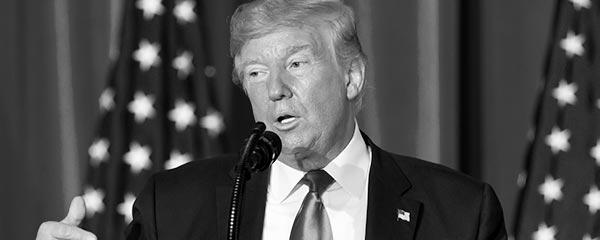PRINCETON, NJ -- President Barack Obama's job approval rating has shown a pattern of decline over the course of the summer months during his presidency. From June through August, his approval rating shows a noticeable dip each month, resulting in an average approval rating below 46% in August, the worst he has averaged in any month of the year.

Obama's higher January-April averages are aided by more positive ratings during the honeymoon period of his presidency in early 2009. And his higher average May ratings are influenced by surges in approval in May 2011 after Osama bin Laden's capture. However, there is no single reading in any June, July, or August during the last five years that significantly lowers the average approval rating for Obama in those months. Rather, his summer ratings are mostly characterized by consistent decline.
His job approval rating has yet to increase from the prior month in any of the 15 Junes, Julys, or Augusts during his presidency -- showing a decline in 13 of those 15 months, and no change in the other two.

Thus, the decline in his approval rating from 49% in May of this year to 45% in August to date may reflect this seasonal pattern in how Americans view the president as much as anything he is or is not doing at the moment.
It is not obvious why this apparent pattern occurs. One possibility is the president is a bit less active in the summer months with Congress out of session for most of August and around the summer holidays. And presidents typically go on vacation themselves during the summer. Also, Americans may pay less attention to the news and what the president is doing during the summer and may be somewhat more reluctant to say they approve without that information.
Bush, Clinton Job Approval Also Lower in the Summer Months
Obama's predecessors in the Oval Office, George W. Bush and Bill Clinton, did not suffer the same month-to-month drop in approval rating through the summer months that Obama has. But that doesn't mean the summer months were kind to them, either. In fact, for both Bush and Clinton, their lowest approval averages by month were for June, July, and August.
Specifically, Bush averaged between 47.6% and 48.1% approval during the summer months, but 48.3% or higher in the other nine months of the year. For Bush, like Obama, August tended to be his worst month in terms of job approval.

For Clinton, like Bush, June, July, and August were his three worst months of the year for job approval. However, in Clinton's case, unlike Bush's and Obama's, June rather than August tended to be his single worst month.

To the extent a presidential "summer swoon" is a real phenomenon, it is probably more recent in origin. Although the averages by month across all presidents since Truman do show some decline between May and August, it is not as consistent as it has been for Obama. And while June, July, and August average approval ratings for all presidents combined are among the lowest, September and October are about as low.

A good deal of the variation by month across all presidents can be explained by the presidential election cycle, which would come into play every four years. Approval ratings may be somewhat lower in September and October during the most intense part of the campaign, when Americans tend to be less inclined to approve of a president if they support a candidate from the other party. Similarly, the higher averages in the early months of the year may be due to the honeymoon phase for newly inaugurated presidents and in the later months may be due to " that are common for presidents after elections.
Among individual presidents, there is some evidence of lower summer-month ratings for Lyndon Johnson, Richard Nixon, and Jimmy Carter, in addition to Obama, Bush, and Clinton. Other presidents tended to fare worse in other months of the year or show increased approval during the summer on average. (See page two for the full data by month on all presidents.)
Implications
After a surge in approval , Obama has seen his approval rating decline, with much of that decline occurring in the last three months. That has become a familiar pattern for Obama: to see his approval rating dip from June through August. Obama is not the first president to see his support dip during the summer, but it is not necessarily a truism in presidential politics, because it has not happened for all presidents, or even a majority of them, though it appears to be more common among recent presidents.
With Obama vacationing this week and Congress in recess, it is not likely that much will happen in the next few weeks to cause Obama's rating to go up. The longer-term prospects for Obama's approval rating, into the fall months, are unclear based on his history. In some years, particularly during the 2012 election year, his rating improved in the fall months. But in other years, such as in 2011 after the debt ceiling debate, it did not.
There will be several significant challenges facing the president when he returns to work, including a return to the debt ceiling issue, the need to pass a budget for the new fiscal year, and the need to roll out some of the more significant changes to the healthcare system set to go into effect on Jan. 1. These challenges clearly provide Obama with an opportunity to increase his public support if he handles them well, but also could serve to bring his approval rating down if he does not.
Explore President Obama's approval ratings in depth and compare them with those of past presidents in the Â鶹´«Ã½AV Presidential Job Approval Center.

